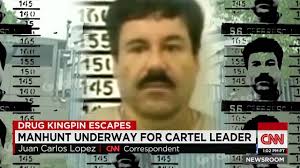The Rise and Fall of El Chapo: Notorious Drug Lord

Introduction
Joaquín “El Chapo” Guzmán is one of the most recognized names in the world of organized crime. His life has captivated audiences and instilled fear as he led the Sinaloa Cartel, a major player in the global drug trade. Understanding El Chapo’s impact is vital, as it sheds light on the intricacies of drug trafficking, law enforcement challenges, and the sociopolitical factors surrounding this ongoing crisis.
The Rise of El Chapo
Born in a poor farming family in the Mexican state of Sinaloa in 1957, Guzmán began his career in the drug trade in the late 1970s, initially working under the infamous drug lord Miguel Ángel Félix Gallardo. By the 1990s, he had formed the Sinaloa Cartel, which would grow to dominate the U.S. market for cocaine, methamphetamine, and marijuana. His innovative trafficking methods, including the use of tunnels and bribery, allowed him to transport vast quantities of drugs while evading law enforcement.
The Downfall of El Chapo
El Chapo’s reign came to a head in February 2014 when he was captured by Mexican authorities. Following his dramatic escape from a maximum-security prison in July 2015, which involved a mile-long tunnel dug to the outside world, he was recaptured in January 2016. In 2019, he was tried in the United States and ultimately sentenced to life in prison plus 30 years, along with a forfeiture of $12.6 billion, emphasizing the immense wealth and influence he had gained through his criminal empire.
The Impact of El Chapo
El Chapo’s operations have had devastating effects on communities in both Mexico and the United States. The violence stemming from cartel wars, fueled by the competition for drug markets, has led to thousands of deaths and rampant corruption within law enforcement. Additionally, his life story has sparked numerous films, books, and documentaries, illustrating the complex narratives surrounding drug trafficking and its consequences.
Conclusion
The saga of El Chapo serves as a stark reminder of the ongoing battle against drug trafficking and organized crime. While he is incarcerated, the American and Mexican governments continue to grapple with the impact of his cartel, as new players emerge to fill the void. Understanding the rise and fall of El Chapo not only provides insight into the inner workings of drug syndicates but also highlights the urgent need for comprehensive strategies to combat drug trafficking and its associated violence. The legacy of El Chapo will likely influence both sociopolitical discussions and law enforcement tactics for years to come.









